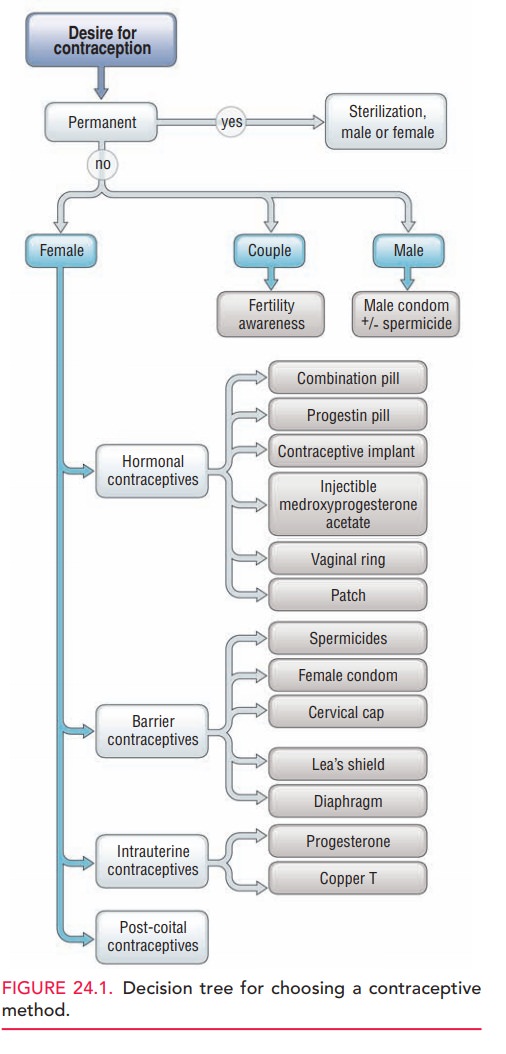Chapter: Obstetrics and Gynecology: Contraception
Factors Affecting Choice of Contraceptive Method
FACTORS AFFECTING CHOICE
OF CONTRACEPTIVE METHOD
Although efficacy is important in
the choice of contracep-tive methods, other factors to be considered include
safety, availability, cost, and personal acceptability to patient and partner.
Although we tend to think of safety in terms of sig-nificant health risks, for
many patients this also includes the possibility of side effects. For a couple
to use a method, it must be accessible and affordable for the patient. How and
when the method is used also can determine accept-ability. Options vary from
methods that are coitus-depen-dent (barriers) to methods that are placed by a
healthcare provider and last for up to 10 years (intrauterine contracep-tion).
Some women prefer methods they control. They can choose an oral daily
preparation, while others consider the weekly transdermal (contraceptive patch)
or the monthly transvaginal (contraceptive ring) forms easier to use
suc-cessfully. Other women elect to use a method administered by their
healthcare provider, such as injections, implants, or intrauterine
contraception.
The ability of a contraceptive
method to provide some protection against sexually transmitted diseases (STDs)
may also be relevant. Career or other life choices, as well as plans for future
fertility, may influence the type and duration of the method chosen. Finally,
the couple’s feelings about which partner should take responsibility for
contraception may be important. The clinician must be sensitive to all these
factors that might influence the decision and provide factual information that
fits the needs of the patient and her partner. A decision tree based on this
concept is pre-sented in Figure 24.1.

Related Topics